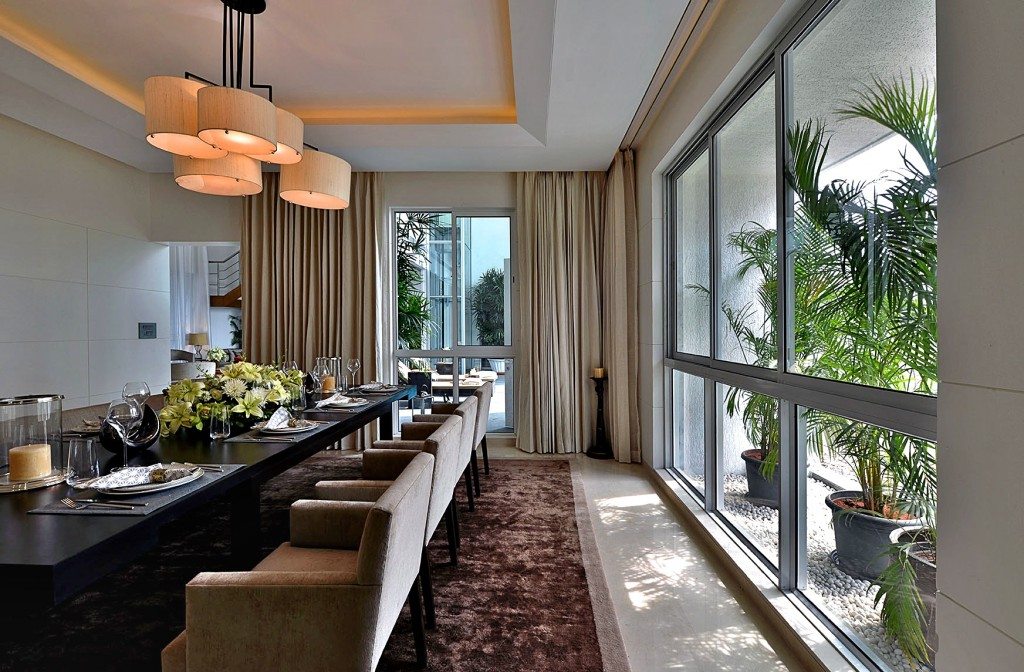StudioHBA, a division of US-head-quartered HBA, has followed in the footsteps of Areen Hospitality and Wilson Associates in setting up a Dubai practice this year. The proliferation of hospitality designers clearly points to a booming sector, but is there really enough work to sustain all these new offices?
Exuding a Zen-like aura, Rahul Shankhwalker, StudioHBA principal and design director, is unconcerned about the number of hospitality designers in the region. “It encourages us,” he says, with a gentle delivery. “In the Middle East, there is work for everyone and there are different kinds of requirements in the market – each firm has its own strengths. I cannot say there is a place for everyone, but there is definitely a place for us.”
Justin Wells, studio director in Dubai, adds: “We’ve done our due diligence to really understand this market and we know there is definitely a role for Studio here. We don’t enter into any region lightly – we do a fair bit of research.”
Wells explains that Studio differs from its parent company – and many other hospitality designers – in that it targets three and four star projects, as opposed to top-end schemes.
He continues: “Since the financial crisis, developers are being a little bit more cautious about the capital development. Bearing in mind that sentiment, Studio primarily looks at the mid-tier quality of hotel offerings – three and four star – but we don’t dilute any of the quality of the design.
“There is also a huge incentive from the government to cater for the three and four star hotel market in the lead up to Expo 2020. With the Qatar 2022 World Cup as well, there is going to be a global focus on the Middle East, effectively for the next decade. We are here to capitalise on those opportunities.”
Established six years ago, StudioHBA now has seven global locations. Initially the Dubai office will have three designers, supported by a global network of experts, fully-owned by HBA. “We are about sustainable growth and don’t want to expand stratospherically. It’s important for us to maintain relationships with clients – they need access to the same person throughout a project,” says Wells.
As hospitality design experts, Wells and Shankhwalker naturally have opinions on the region’s existing hotel stock. Wells elaborates: “For me, a common issue is a lack of a sense of arrival. We believe there should be a sense of theatre to the whole experience.”
Shankhwalker states that lighting design is a critical and often overlooked aspect. “I like to take a more design experiential approach. Design is manifested through lighting – without proper lighting you just cannot bring out design. You can’t see it, or you oversee it, and it’s a kill in both cases. It makes or breaks us as designers and it’s one of the most important finishing touches to our design.”
He adds that this expertise is so important that StudioHBA has its own in-house lighting team, Illuminate. “Previously, we used external consultants but now we have the talent in-house and it gives us more control.”
Wells also underlines the importance of attention to detail. “Rather than high quality design outcomes, there needs to be a greater understanding of more cost-effective materials. Also, we need to be critical about detailing and connections.”
He adds that inferior products often stem from the client’s choice of consultants. “If a client wants to cut costs, in terms of consultant input, there is a bigger loss to the developer in the final outcome. It’s hard to put a dollar value to the experience of the final outcome – but it’s a very expensive loss.”
When it comes to future plans, both directors point out that StudioHBA is not just about hospitality. Wells continues: “Although hospitality is our core area of expertise, Studio caters for other sectors, as well. We’re also involved in retail, commercial, residential, and F&B projects.”
He states that the latter category is particularly of interest. “It goes hand-in-hand with hospitality. Specialist F&B is certainly something we have a lot of experience in.”
Wells states that diversification is within StudioHBA’s strategy, moving forward. “It’s part of sustainable growth. Even though we believe there is a lot of depth to hospitality for quite a few years, diversification de-risks a business model.
“Diversification also brings together the skill-sets of our designers. Probably the most gratifying part of starting in the Middle East is that the market is quite broad and diverse. It reinforces our interest in those other sectors, in addition to hospitality.”

